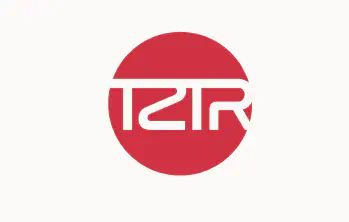EMIR Refit - Flagship reporting regulation after Brexit
The EMIR REFIT Regulation aimed to reduce unnecessary regulatory burdens imposed on market participants. It stemmed from the European Commission’s findings that the original technical standards introduced by EMIR in 2012/13 were unduly onerous, but the question of whether it has achieved its aims is very much up for debate.
Critically, the REFIT’s expanded definition of financial counterparties has brought a new class of entity within the bounds of reporting requirements. Coupled with the legal implications of Brexit and the onshoring of EU law to the UK, this development has arguably made the European Union’s financial market protection regime more complicated now than ever before.
In this article, we explore the key provisions of EMIR REFIT and consider the implications of Brexit for UK-based market participants.
What is EMIR REFIT?
The European Market Infrastructure Regulation (EMIR) was enacted on 15 March 2013 and introduced reporting obligations for financial counterparties to trades of over the counter (OTC) derivatives. With some exceptions, both buyers and sellers of derivatives must report transaction details to a trade repository (TR).
Following an extensive 2015 review, the European Commission concluded that EMIR was overly complex and required reform. This came as part of the Commission’s Fitness and Performance (REFIT) programme which culminated in
Regulation (EU) 2019/834– commonly known as the REFIT Regulation or EMIR II.
The majority of the Regulation’s provisions came into effect on 17 June 2019, but many contend that it has introduced yet further confusion into the EU’s market protection regime. There is significant confusion surrounding the inclusion of Alternative Investment Funds (AIFs) as financial counterparties and further questions surrounding the applicability of the law to UK firms following Brexit.
EMIR REFIT – Key Provisions Explained
The REFIT Regulation has amended many of the provisions contained within the original EMIR regime, all with the express aim of streamlining the reporting process.
1. A Wider Class of Financial Counterparties
In an expansion to EMIR reporting requirements, the REFIT Regulation includes EU-established Alternative Investment Funds (AIFs) and central securities depositaries in its definition of financial counterparties. This status change applies to all AIFs established in the EU, regardless of their Alternative Investment Fund Manager’s (AIFMs) status or location.
This change casts a particularly wide regulatory net by introducing reporting requirements for an entirely new class of market participants. AIFs are now subject to EMIR’s clearing requirements and for the margining provisions that affect non-cleared derivatives (NCDs). The amendment has further implications for AIFs established outside of the EU, which are now classified as third-country entities and as such are subject to EMIR margin requirements when transacting with EU dealers.
Certain special purpose entities and employee share purchase plans are notably excluded from the definition of an AIF, and instead fall under the banner of non-financial counterparties (NFCs) for the purposes of EMIR.
2. Exemptions for Small Financial Counterparties
In addition to widening the definition of financial counterparties, the REFIT Regulation also establishes “small financial counterparty” (SFC) status. Entities that fall within this class of counterparty are exempt from clearing obligations, but are subject to margin requirements and other general risk mitigation obligations.
SFC status (and therefore the exemption) is determined by applying the same thresholds that are used for non-financial counterparties (NFCs). The determination must be made once a year, based on aggregate month-end average figures for the preceding 12-month period. Organisations can opt out of ongoing determinations by electing to adopt full financial counterparty status, subject to notifying ESMA and any relevant national competent authority (NCA).
3. Removal of Backloading Obligations
The REFIT Regulation removed the obligation for counterparties to report historic derivative transactions, effectively ending the practice of ‘backloading’.
Under EMIR, counterparties were required to report derivative transactions that were outstanding on 16 August 2012 despite official reporting commencing on 12 February 2014. Firms faced a technical deadline of 12 February 2019 to report historical trades, but the European Securities and Markets Authority (ESMA) has since stated that it does not expect national authorities to prioritise supervisory action on the reporting of backloaded transactions following the implementation of REFIT.
4. Introduction of FRANDT Requirements
Beyond changes to reporting requirements, EMIR REFIT also introduced new obligations on clearing members and firms providing clearing services. From 18 June 2021, entities that provide clearing services must offer them using commercial terms that are fair, reasonable, non-discriminatory, and transparent (FRANDT).
The new obligations aim to improve transparency by ensuring that clearing clients are provided with a standardised service both in respect of the terms on which they contract and the information they receive as part of a deal.
More information about the new clearing requirements can be found in
ESMA’s final report on FRANDT.5. Suspension Powers for ESMA
EMIR REFIT introduces further powers for ESMA, including the right to lodge a request with the European Commission to suspend the clearing obligation for up to three months (extendable in three-month increments to a total period of 12 months) for particular types of assets or counterparties.
This provision enables ESMA to take radical action to suspend clearing obligations in order to maintain market suitability and adjust its regime in line with the rapidly evolving financial markets.
Does EMIR Apply After Brexit?
Despite much confusion regarding the applicability of the REFIT Regulation following Brexit, it is important to remember that the UK did not actually leave the EU until 31 January 2020. EMIR Refit came into force on 17 June 2019, and its provisions were largely onshored and enshrined into UK domestic law by the
European Union (Withdrawal) Act 2018.This retained body of law is now widely referred to as ‘UK EMIR’, and although it broadly mirrors its EU counterpart there are several key changes for UK entities to be aware of. Most notably, UK-established counterparties must report all qualifying derivative transactions entered after 1 January 2021 to a UK EMIR registered trade repository and may no longer be able to rely on their relationship with an EEA group entity for reporting or clearing exemptions.
Change on the Horizon
It remains to be seen whether the EMIR REFIT Regulation will succeed in its objective of simplifying the EU’s derivatives market regulatory regime. In any case, it is clear that this area of regulation is extremely complex and the changes made by REFIT require careful consideration by all market participants dealing in OTC derivatives.
Reporting regulations are often incredibly difficult to navigate, making it all the more important for firms to adopt a robust approach to compliance. eflow’s TZTR software simplifies the transaction reporting process and makes it easy to stay on the right side of market abuse regulations – however demanding they may be.
For more information, book a demo or contact eflow today.
*This article is provided for informational purposes only and should not be relied upon as legal or financial advice. Its contents are current at the date of publication and do not necessarily reflect the present state of the law.



